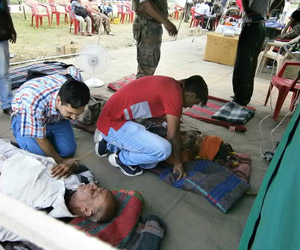In the United States, around 29 million older adults volunteer through organizations each year, contributing three billion hours of service to the community at large.
‘Volunteers with lower wealth experience greater health gains from volunteering than wealthier volunteers.’
Volunteering is regarded as beneficial for volunteer health, and some studies have even suggested the possibility that volunteering could become a low-cost, sustainable public health intervention.
“Earlier studies with two to 20 years of follow-up have reported that regardless of how volunteering was measured (for example, status, intensity, duration, or consistency), the activity was associated with higher self-rated health and fewer depressive symptoms,” explained co-investigator Seoyoun Kim, PhD, Department of Sociology, Texas State University, San Marcos, TX, USA.
The investigators analyzed data from nearly 90,000 observations from the Health and Retirement Study that included observations from 2004 to 2016 using data from a previous wave to predict outcomes in the next wave to alleviate concerns about reverse causality.
They also created a quasi-experimental study using statistical analyses to adjust for the fact that wealthier older adults were more likely to volunteer, among other factors, thereby reducing bias in their results.
Findings show that volunteering enhanced self-reported health and reduced depressive symptoms for older adults in general. Those in the lowest wealth quintile experienced more gains in self-reported health from volunteering compared to their wealthy counterparts.
This study also enhances our understanding of how formal volunteering influences health and well-being in two key ways.
Volunteering in general is good for you but this study shows that volunteering’s health effect among older adults in the lowest wealth quintile is stronger than for the highest wealth quintile of older adults.
Policymakers and charitable organizations tend to focus on the middle class to wealthy volunteers must eliminate barriers to volunteering among the least wealthy, such as lack of transportation, discrimination, or lack of organizational support.
It is possible that being involved in the work of non-profit and community organizations increases one’s social networks and access to important health promotion programs which, in turn, influences the health of the lowest wealth volunteers the most.
Source: Medindia



